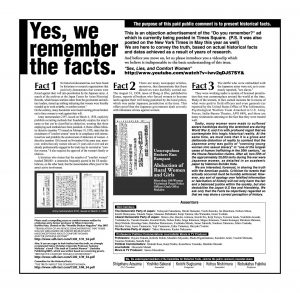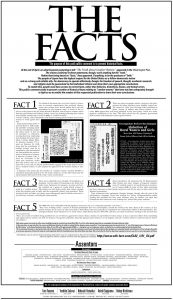Japan-ROK Agreement (2015) is a bilateral agreement announced by foreign ministers of Japan and South Korea (Republic of Korea) at a press conference on December 28, 2015 to “finally and irreversibly” resolve the “issue of comfort women between Japan and the ROK.”
The agreement consists of two separate announcements by foreign ministers, followed up by a telephone exchange between Japanese Prime Minister Shinzo Abe and South Korean President Geun-hye Park. There is no actual agreed-upon statement to be ratified or endorsed by parliaments in either country.
Under the agreement, Japanese government would contribute 1 billion yens (about $10 million USD) to a fund set up by the South Korean government, which would provide disbursement to South Korean former comfort women to “heal psychological wounds.” Japanese government insists that the payment is not a reparation, and does not represent an admission of legal liability.
In return, the government of South Korea acknowledged “the fact that the Government of Japan is concerned about the [comfort women] statue built in front of the Embassy of Japan in Seoul,” and promises that it “will strive to solve this issue in an appropriate manner.”
As soon as the agreement was announced, it was denounced by surviving victims of Japanese military comfort women system both because the governments did not consult them about the agreement and also because the agreement fell vastly short of survivors’ demands, or demands of the U.S. House of Representatives in H.Res.201 (2007), including the full acknowledgement of the Japanese military’s involvement in the trafficking of women, further investigation and prosecution of those involved in the crimes, formal apology through parliamentary resolution or cabinet statement, legal reparation to victims, and the inclusion of comfort women history in history textbooks. Survivors in Taiwan, the Philippines, and other countries also protested the agreement because it offered the disbursement of funds to South Korean survivors only.
In the political turmoil leading up to the impeachment of President Park in 2016, many opposition party leaders and presidential candidates are pledging to nullify the agreement. Meanwhile in Japan, fringe extremist groups such as Global Alliance for Historical Truth and Nadeshiko Action call for the repeal of the agreement, while some establishment conservative groups affiliated with Japan Conference applaud Abe’s successful deal with South Korea.


